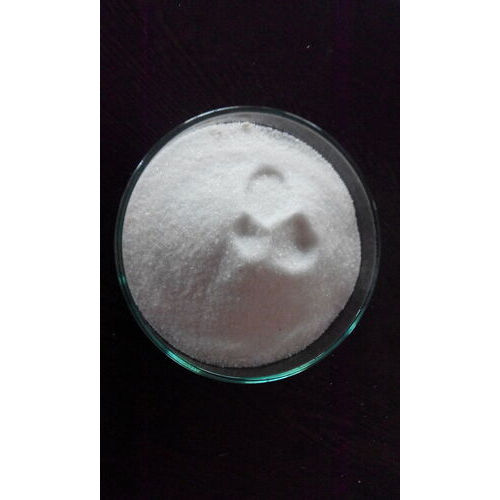Call Us Now
08045812761
Potassium Chloride
Product Details:
- Storage Dry Place
- Ph Level 6.5 to 7
- Structural Formula KCL
- HS Code 28273990
- Water Insoluble 0.01%
- Molecular Weight 74.553 Grams (g)
- Place of Origin India
- Click to view more
Potassium Chloride Price And Quantity
- 1000 Kilograms
- 45 INR/Kilograms
Potassium Chloride Product Specifications
- 74.553 Grams (g)
- Rubber Organic Synthesis Pharmaceutical Fertilizer Red Dyes Feed additives
- 0.01%
- Clear Colourless Liquid in Water
- 770*C
- India
- 6.5 to 7
- Dry Place
- White
- 28273990
- KCL
Potassium Chloride Trade Information
- 50
- 60000 Kilograms Per Month
- 10 Days
- Free samples available with shipping and taxes paid by the buyer
- 50 Kgs HDPE Bags
- All India
- ISO 9001:2015
Product Description
Our Company Manufacturing Potassium Chloride from Byproducts of Potassium Chloride So its Purity May be 97% to 98% and its colour not bright white but its colour is dull white
Potassium chloride (KCl) is a chemical compound composed of potassium and chlorine ions. It is a type of salt that is commonly used in various applications, including in the field of medicine, food production, and industrial processes. Here are some key facts and uses of potassium chloride:
1. Chemical Composition Potassium chloride consists of one potassium (K+) ion and one chloride (Cl-) ion, held together by ionic bonds.
2. Natural Occurrence It can be found naturally in minerals and is often extracted from underground deposits through mining. It is also present in sea water in relatively small quantities.
3. Medical Use Potassium chloride is used in medicine as a potassium supplement, typically in cases where a person has low levels of potassium in their blood, a condition known as hypokalemia. It is available in various forms, including oral tablets, liquid solutions, and intravenous (IV) solutions.
4. Food Additive In the food industry, potassium chloride is sometimes used as a salt substitute or flavor enhancer. It can help reduce sodium content in processed foods while maintaining a salty taste. This is especially useful for individuals who need to limit their sodium intake for health reasons.
5. Fertilizer In agriculture, potassium chloride is a significant source of potassium, an essential nutrient for plant growth. It is commonly used as a fertilizer to supply potassium to soil and plants.
6. Chemical Industry Potassium chloride serves as a raw material in the chemical industry for the production of various chemicals, including potassium hydroxide (KOH) and chlorine gas (Cl2).
7. Industrial Applications It is used in some industrial processes, such as in the manufacturing of soap, glass, and detergents.
8. Electrolyte In scientific and laboratory settings, potassium chloride is used to create electrolyte solutions for various experiments and applications.
9. Water Softening Potassium chloride can be used in water softening systems as an alternative to sodium chloride (table salt) to reduce the hardness of water. This is often preferred in cases where individuals are concerned about their sodium intake.
10. Safety Considerations While potassium chloride is generally safe when used as directed for medical purposes or in food production, excessive consumption can lead to health issues. Ingesting large amounts can result in hyperkalemia, a condition characterized by elevated levels of potassium in the blood, which can be dangerous. Therefore, it is important to use potassium chloride supplements or additives as recommended by healthcare professionals or food industry guidelines.

 English
English Spanish
Spanish French
French German
German Italian
Italian Chinese (Simplified)
Chinese (Simplified) Japanese
Japanese Korean
Korean Arabic
Arabic Portuguese
Portuguese






